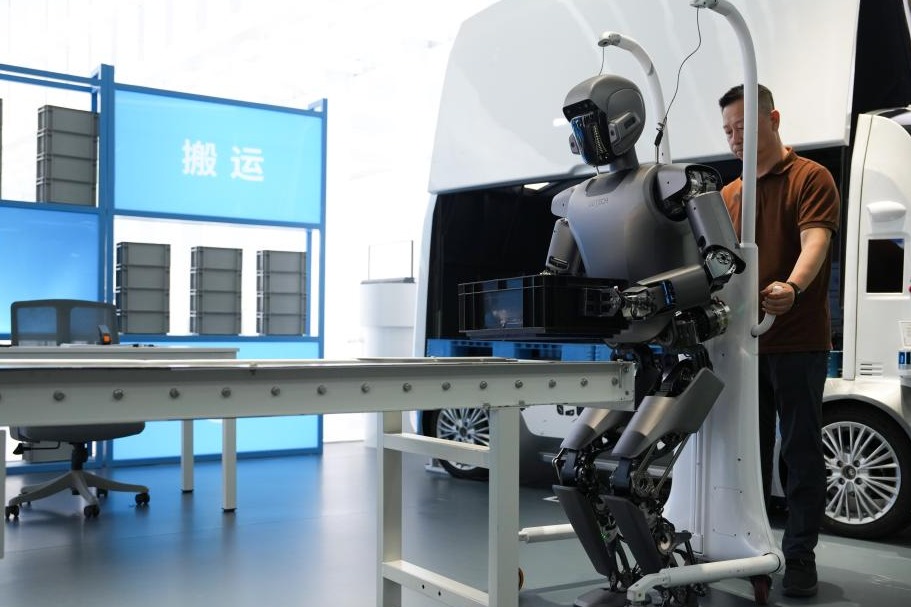Xi's report to congress outlines new approaches to HKSAR

Last week in this column, we discussed Communist Party of China General Secretary Xi Jinping's Thought on Socialism with Chinese Characteristics for a New Era and its implications for Hong Kong. This week, I would like to zoom in on the section on Hong Kong and Macao in his report and highlight what I think is important but neglected by the mainstream pundits.
Whenever the central government or the CPC presents something, people in Hong Kong will immediately look at what they are familiar with. This time it is no different, and many of our commentators are still obsessed with concepts in the report about Hong Kong including "comprehensive jurisdiction", and speculate on how it is supposed to be combined "organically" with the "high degree of autonomy", as Xi's report mandates.
These concepts are nothing new. The phrase "comprehensive jurisdiction" was first mentioned when the State Council released a white paper spelling out the accurate understanding of "one country, two systems" in June 2014. As for the term "high degree of autonomy", why is it still an issue after more than three decades?
It is time we stop navel-gazing. New and important ideas and policies have been announced by Xi's report. In particular, we should pay attention to paragraphs about integrating Hong Kong and Macao into the mainland.
In his report, Xi said the Party will continue to support Hong Kong and Macao in integrating their own development into the overall development of the country. Priorities will be given to development of the Guangdong-Hong Kong-Macao Greater Bay Area; cooperation between Guangdong, Hong Kong and Macao; and regional cooperation in the pan-Pearl River Delta.
Policies will also be improved to make it more convenient for the people from Hong Kong and Macao to pursue career development on the mainland, according to Xi's report.
The language of integration represents a new way of thinking. In the past, the overall consensus - among mainland officials, Hong Kong patriots and Hong Kong's opposition camp - is one about compartmentalization. Hong Kong and the rest of China are so different, the logic goes, that we had better keep the two apart. The less they integrate, the better. And this compartmentalization is also key to maintaining Hong Kong's unique competitive edge, which the rest of China can in turn take advantage of.

Xi's report correctly tackles integration at two different levels. The first is integration of Hong Kong's development into national development. This means the logic of Hong Kong's political economic system will have to be attuned to that of the country.
The second is about the integration of Hong Kong Chinese into the rest of the Chinese society. As this column has emphasized repeatedly, we cannot treat Hong Kong and Hong Kong citizens as the same thing. Hong Kong can have high economic growth while Hong Kong people have stagnant income levels. In fact, this kind of misalignment caused the discontent in our society in recent years.
Therefore, Xi's report has disentangled Hong Kong with its citizens, giving a whole new range of opportunities to the Hong Kong people, who in the future are no longer dependent on Hong Kong the city for their success and well-being. This is, if they are willing to grab these opportunities.
"One country, two systems" is a one-of-a-kind arrangement. It is about two political and economic systems operating within one country. In the past, people in Hong Kong have avoided the question of who is leading the "two systems", or which of these systems is the dominant one. Some naively think that the two systems can develop themselves without a pilot. This is the true reason why Hong Kong has lost its economic glory after the handover. Xi's report gives an unequivocal answer, albeit one that some Hong Kong people might not like.
People have also mistakenly believed that "two systems" means two citizenships. This is not only absurd, but leads to all kinds of separatist ideologies. The 19th Party congress report has made it clear that the country is moving toward one citizenship model. The first step of this grand project will be to make things more convenient for Hong Kong people on the mainland.
(HK Edition 10/31/2017 page8)
Today's Top News
- Xi chairs CPC leadership meeting to review work regulations on decision-making, deliberation, coordination
- China's ancient dreams make for modern space triumphs
- CPC has more than 100.27m members
- Flexible programs build diverse talent pool
- China opposes deals harming its interests
- CPC's governance highly effective, democratic






























